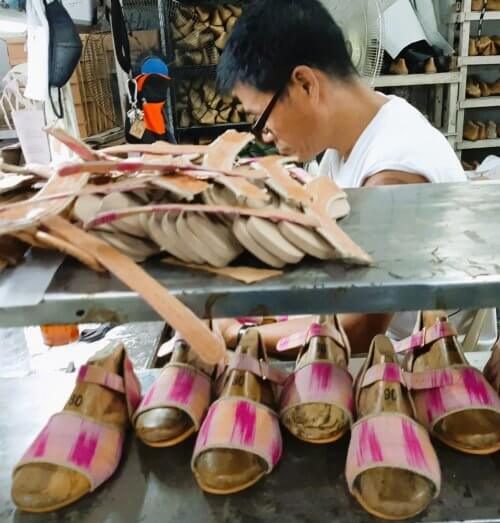Our Story
The Story of HolaLili
Each piece carries a story – whether it is the Balud fabric inspired by the waves of Lake Lanao, the geometric prints of the Kinan-ew fabric, symbolizing spears and other items found in the mountains, or the optical spirals of the Binakul representing the wind and waves. Whatever fabric you choose, know that these were chosen not just because they are gorgeous, but also for the cultural heritage these represent.
Hours of hard work are needed to make these ornate textiles yet these are not always appreciated. The weavers, because of low wages and scarce opportunities, are tempted by jobs in the big cities or even in other countries, which can take them away from their families for years at a time.
Why preserve hand weaving? One of the greatest advantages of hand weaving allowing the weavers, mostly women, to work from home. With floor looms in their living room or a back strap loom anchored to a tree or pillar, they can take care of kids and family, while flexibly earning a living. Among weaving communities in the Philippines, mothers say that a child strapped to her mother’s back can be put right to sleep by the rhythm of weaving. Who needs a swing?
Thoughtful Business Decisions
HolaLili is trying to develop a profitable, ethical, and sustainable business model. We look for opportunities for make decisions that improve the lives of our stakeholders through economic opportunity and environmental sustainability. We hope that with ever new business decision, we can add to our positive impact.
- Many of our shoes come with recycled tire soles – the comfort of a rubber sole, while reducing waste.
- All of our textiles are directly sourced from cooperatives which pay weavers more, and often help by buying thread, guaranteeing purchases of textile, allowing flexible delivery dates, and training their artisans.
- Our HolaLili shoe bags are made by a livelihood enterprise that gives women in crisis a living wage while developing skills to help them provide for their families. They print our bags with soy inks on sustainably sourced fabrics.
- HolaLili saves manufacturing scraps to repurpose into beautiful pieces that one day may also be sold on our website.
The future holds more positive opportunities from natural waterproofing, recycled rubber sneaker soles, sustainable leather alternatives, locally grown rubber insoles, textiles woven from recycled clothing, lower footprint packaging or packaging-free, and more. And of course, finding new textiles to design into our shoes.
Our Handmade Shoes
Artisan Sapateros (shoemakers) have been cutting, gluing, lasting and stitching shoes for over a century in the city of Marikina, Philippines. Unfortunately, the flood of cheap machine-made shoes from China has put tremendous pressure on the local industry. As jobs decrease, skills are lost as the next generation looks elsewhere for income.
HolaLili works with a small shoe workshop-factory that is dedicated to preserving the shoemaking tradition, with innovative styles and progressive business practices. While most of the local industry pay per piece, we work with a manufacturer that pays salaries, invests in the personal and professional development of her employees, and has implemented a code of ethics in the workshop.
We could make the shoes cheaper and faster in a Chinese factory but HolaLili wants to support quality jobs where workers are artisans and do not have to travel away from their families to make a living.

